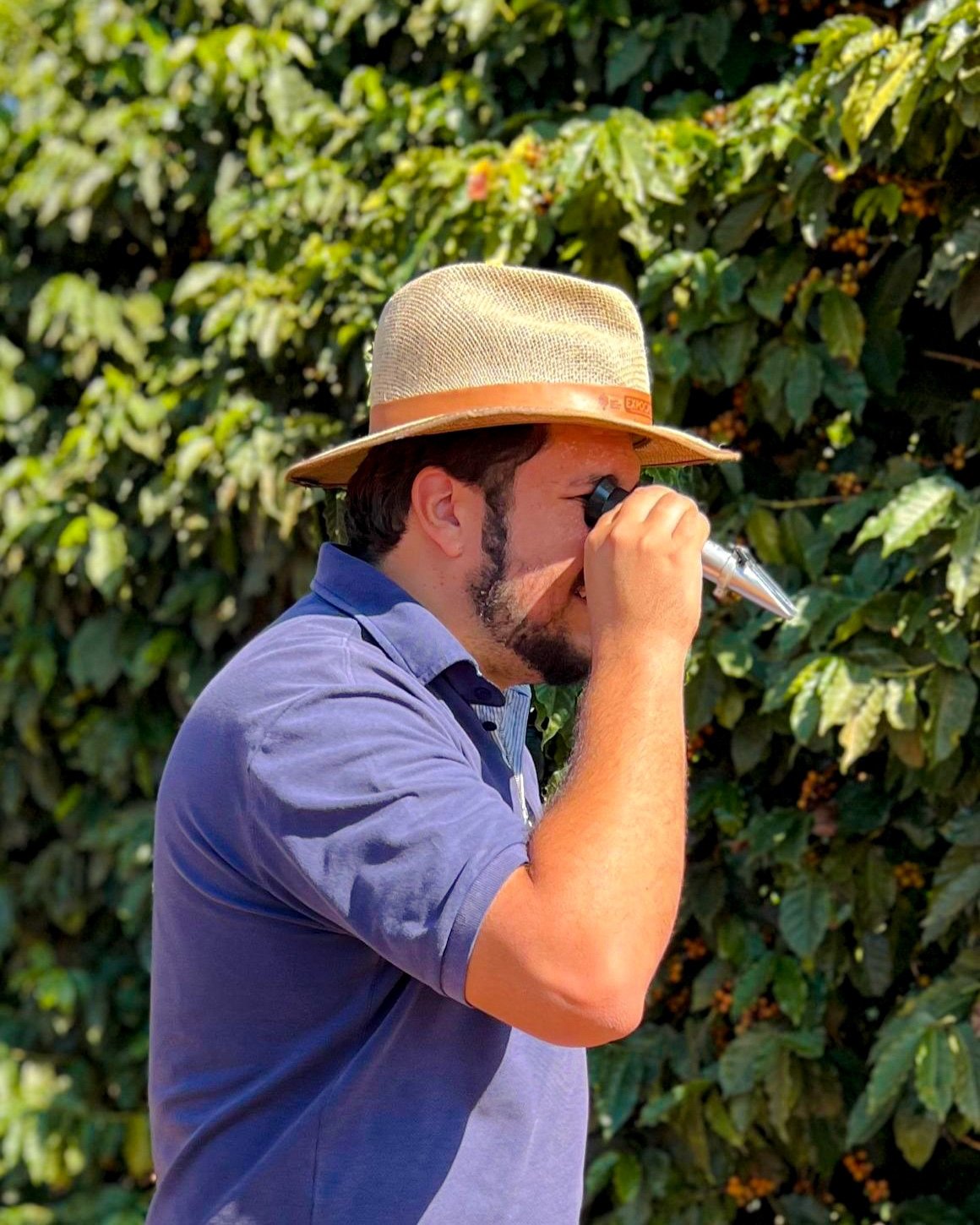Deyvid Leandro: Coffee Maker
When I was designing the Q Processing Program with Mario Fernandez at CQI I wanted to call graduates of the Q Processing Level 3, the highest level of certification the CQI offer, "Coffee Makers." Deyvid is a great example of a Coffee Maker: someone who stands between the consumer and the realities of a particular harvest. Someone who understands what the market wants, has their own concept of what is “good,” knows what to look for in the raw fruit and what steps to take in the post-harvest to convert that fruit into the product they want, and has years of experience to draw upon when the realities of nature come storming in.
I first had the pleasure of meeting Deyvid at a Q Grader Arabica course in August 2017. In 2021 D’Barbosa coffee, where Deyvid is the resident Coffee Maker, won the Cup of Excellence and the Cerrado Mineiro competition. We are proud to offer our first coffee, the Cerrado Mineiro winning lot, from D’Barbosa this month at Casa Brasil. To mark the occasion, I sat down with Deyvid for a short interview.
CB: First off, congratulations on your win, both the COE but also the Cerrado Mineiro. So, of the 55 million bags (7.2 billion lbs) of coffee produced in Brazil last year, yours was the very best. That is no small feat. And, on top of that, you won the Cerrado Mineiro “Coffee Maker” award. What a year!
Deyvid: Thank you Joel for these kind words, it’s a pleasure to talk with you and I’m happy that when I first took the Q Grader classes, you were the one that instructed me on specialty and high-quality coffees.
CB: If one takes the simple combination of cultivar + altitude, the Cerrado Mineiro region should be good, but not the best. And yet coffees from the Cerrado Mineiro have won the last 3 of 4 COE competitions. What is missing from that cultivar + altitude equation? How has the Cerrado Mineiro been able to produce some of the world's best coffees?
Deyvid: I think the Cerrado Mineiro region is a great terroir in terms of quality and production. We are able to achieve very good results here. We also are very passionate about high-quality coffee and are always trying to not just make coffee, but make the best coffee possible. This is in our culture here and is the necessary element that runs through everything. Then add to that the higher levels of technology that Cerrado growers have been applying for many years in the field and that are now being applied to fermentation processes. Another key element is that the Cerrado has consistent a climate year after year, which really allows one to develop ideas, if you will, harvest after harvest. Learning from mistakes and successes one harvest and being able to carry those forward to a similar situation the following year.
CB: Can you tell us a little about these specific coffees—the COE-winning coffee and the Cerrado Mineiro winning lot that we purchased (which we actually scored and still score higher, BTW!). What flavors were you trying to bring out in the coffee and what techniques did you use to do so?
Deyvid: These two champion lots have unique taste profiles. The COE Champion is a fruit-forward coffee we made through a 96-hour anaerobic fermentation followed by drying the coffee on a plastic canvas for 12 days. I think our drying method was very unique, the impermeable plastic kept the mucilage in contact with the coffee for an extended period and the coffee continued to ferment as it dried. This coffee scored a 90.5 at COE.
The Cerrado Mineiro champion was more of a classic natural and really represents the taste of our microregion: Pantano. We kept the fruit on the plant well past the traditional harvesting point to really exaggerate the ripe flavors of the cherries. And then we did a traditional drying on the patios. This coffee has a very sweet, sugary, taste profile. It scored 89,8 at the Cerrado Mineiro competition.
CB: What's next? You won it all last year and I am sure are going to do everything you can to achieve similar victories this coming harvest and far into the future. But what is your vision for D’Barbosa and for the "coffee maker" profession in general?
Deyvid: Our goal right now is to stay on top and participate even more in competitions. We also want to expand more on the consumer side, looking for more partners like Casa Brasil to help change the world’s vision of Brazilian Coffee, showing that not only are we the biggest producer in the world, but we also can make amazing quality.
My vision for coffee makers is to inspire more producers to hire more quality control professionals to work at the farm level. Traditionally quality control at the sensory level has occurred only at the coop/warehouse level of the supply chain. And at that point, it is too late for immediate feedback and results. Bringing this profession to the farm can bring big change to our region and country.

